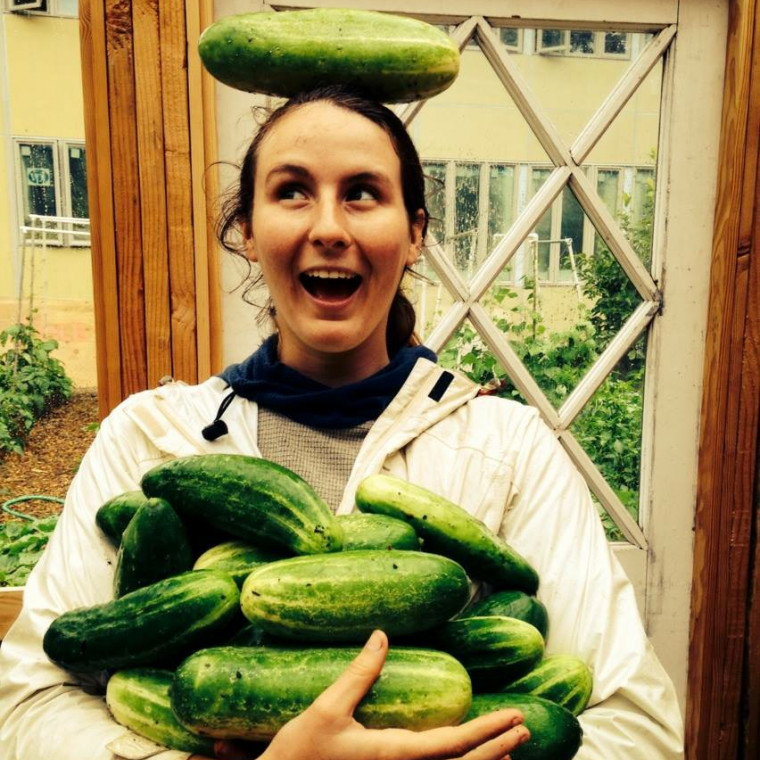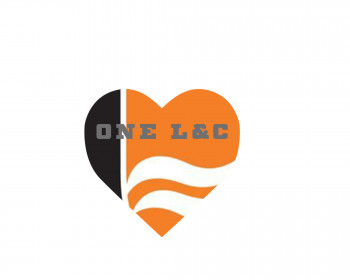Student-cultivated gardens ripe for community-building
Open gallery

In the Summer of 2010, the student-run club Bucolic Farmer’s Society planted gardens near the Forest residence halls and south campus. In the intervening years, a newly-formed student group called the Lewis & Clark Garden Collective has maintained and expanded the gardens.
We talked to senior biology major and avid gardener Cate Turner about how the Collective tends the bounty of delicious, local fruits and veggies—which are available for all L&C community members to harvest.
Can you tell me a little bit about how the gardens are managed?
The garden is collectively run by students. Like all Lewis & Clark clubs, we have a faculty supervisor who guides us with projects, and the gardens have a core leadership crew that takes the responsibility for coordinating club activities and allocating money. Those students usually are elected by previous leaders because they express interest in maintaining the gardens and demonstrate responsibility and enthusiasm for horticulture. We are open to new ideas and practices, and we try to make decisions as unanimously and collectively as possible. We invite everyone to be as involved in the gardens as they would like to be.
What are you growing this summer?
The thing I am most excited to be growing is pumpkins and squash. I planted south campus and Gabe’s garden full of different varieties of summer squash, spaghetti squash, gourds, and pumpkins. They are doing really well, and I’m hoping they’ll be ready in time for the students to arrive so that we can do a pumpkin carving. We’ve also planted tomatoes, snow peas, sweet peas, kale, broccoli, artichoke, beets, garlic, chard, watermelon, carrots, potatoes, leeks, onions, corn, and various herbs including cilantro, fennel, chamomile, lemon thyme, rosemary, and lavender. The plum trees always do well this time of year, too.
Who gets the harvest?
Everyone is welcome to harvest from the gardens. Sometimes we have special events where we ask people not to harvest so that we can either donate the produce or use the harvest for special occasions. But staff, faculty, students, and community members are more than welcome to harvest, plant, and use the gardens.
Are there any plans to share the harvest with Bon Appétit?
I haven’t coordinated with Bon Appétit because we don’t grow in mass quantities. Instead, I’ve been donating extra produce to Sisters of The Road, which is an excellent cafe that serves the Portland homeless community.
How many hours to do you spend gardening each week?
This summer I work for facilities on Grounds crew, so taking care of the gardens is a part of my job, though I do other things as well across campus. Last summer, however, I was paid to work full time on the gardens 40 hours a week. Now I just do whatever I can for the gardens when I am allotted time to spend on them, which has been three to ten hours a week.
What are you working on right now?
We don’t have any major construction projects for this summer, so I’m mostly working on getting all three gardens producing as much as we have the capacity to do so. I’m also preparing areas to be planted out with fall crops so that the students can learn new things when they arrive for the fall term.
As a biology major, do you combine your academic study with this job?
Horticulture and biology are pretty different fields, but working with the gardens and facilities has made me more aware the impact of invasive species on campus, and has reinforced the importance of ecological mindfulness, which have been prevalent themes in my undergrad degree.
As a senior, do you know what the plans for the garden are next summer? How will this continue in the future?
The garden collective already has many sophomore and junior participants who are passionate about horticulture and land stewardship, so I have faith that the Garden Collective will be in good hands. Teaching and volunteering are really important values to us, so I hope that we’ll continue donating and working with Sisters of the Road, and I hope we’ll continue to expand our workshops and develop new ones.
Is there any way interested faculty and staff gardeners can get involved/support your work?
Volunteers are always welcome, including staff and faculty! If people are interested in becoming involved, they can email us at garden@lclark.edu, or like us on Facebook to get updates on what projects we have going on and what produce is ready.
We have a lot of wonderful workshops like pickling, pumpkin carving, and fruit tree pruning workshops that are fun for the whole community.
More The Source Stories
email source@lclark.edu

